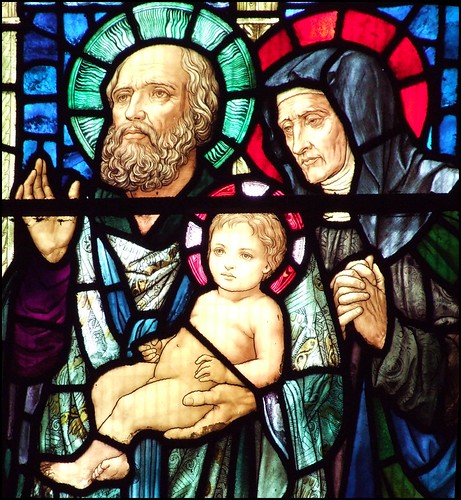The parable of the prodigal son is quite possibly one of Jesus’ greatest hits. I think it shows Jesus’ true genius as a story teller as we all can relate to either the prodigal son or the older brother. It could easily have been called the “tale of two brothers.” But what does this story really mean? What does it tell us about the kingdom of heaven that it is supposed to be describing?
Let’s start with the first son, the younger son known as the prodigal.
We are not told why he decides to leave, but he demands his share of the inheritance and leaves. Kenneth Bailey, a scholar of Middle Eastern Culture, states that this idea would make a first century audience outraged. To demand an inheritance is pretty much wishing the father were dead! Jesus’ audience would have been immediately hostile to this character. The father would be perfectly justified in banishing this brat forever with no inheritance. However, the son gets the money and leaves with no trouble from his dad.
Maybe some of us can relate to this character. We feel like we can take over the world, that we are independent and need no one’s help and if it were offered we’d prolly resent it. We can achieve our own goals and destinies thank you very much and as soon as the world notices me, I’m going to be a rock star, or a movie star, or even someone like Paris Hilton who is famous and everyone knows her but we’re not sure why we know her.
But things don’t work out like that. The son fritters away the inheritance and has to eke out an existence as a swineherder. Even the pigs seem to manage better than he does. It is likely that Jesus’ audience wouldn’t have felt the least bit sorry for him. Serves him right, they’d think. That’ll teach him. Yet the son has a change of heart, in a beautiful bit of poetry, the author of Luke writes in Greek “The son came to himself.” He remembered who he was and decided that if he was going to tend pigs for the rest of his life and live in humiliation, he would rather do it at home with people he knew. So he came back.
Here is where many Christians really connect to the story. They talk about their born again experience. Some even remembering the exact time and date that they came back to the family. When I was a chaplain in the hospital this past fall I heard a few of these stories. One man was in for a knee replacement and stated that while he was in a lot of pain, it was nowhere close to the amount of pain he caused his family. You see he was a drug addict and had been in and out of rehab many times. He had many siblings and had been staying at his sister’s for a few weeks and everything was going great. He knew he had to get it right this time because this was prolly the last sibling that would take him in.
One day the sister gives her brother $50 to go get groceries as she couldn’t get to the store with all her kid’s events going on, you know soccer practice, dance recitals and such. So the guy goes out with his list and is feeling pretty good as he knows he’s trusted and has responsibility to feed the family. He’s feeling so good that he thinks that it wouldn’t hurt to pick up a little six pack on the way to the store. Just to celebrate. What harm could it do? Needless to say he never made it to the grocery store. He spends three days drunk and walking the streets. He doesn’t sleep, he doesn’t really eat, he just drinks. It is when he’s in an adult-video store with a bag of heroin that he “comes to himself.” He told me, laying there in his hospital bed, that as he looked up to the ceiling right before putting the needle in his veins that he saw blood on the ceiling. Little dots and splatters right over his head on the ceiling.
He said the blood spots meant that other people had come here before and shot heroin into their veins like he was about to. He said it was at that moment that he could no longer deny the reality of his situation. He had failed himself, his sister and her family, and all of his siblings and parents. He had learned that he lacked the wisdom, the strength, and the resources to fend for himself and to fight the addiction, just like those who had made the blood spots before him. It was right there where he said yes to Jesus, spent 6 months in rehab, and came out clean. He has been an evangelical Christian now for 10 years and has been clean ever since. He has reunited with his family and makes a ritual of bringing some bread or snacks over to his sister’s house at least once a week so he won’t forget what he did.
In evangelical cultures, we often hear of these dramatic conversions, but we also hear about them at Trinity. Why, don’t we say every week that “No matter where you’ve been, no matter where you’re going, right now, during this hour you’re home?” That appeals to the born-agains in the crowd, the prodigals who left and then came back. Maybe we didn’t listen in Sunday school and found we needed some guidance after college. Maybe many of us were just bored with church until a friend brought us along to this one that’s not like anything we thought church could be! This place is fun! People laugh in service! Sing great songs, clap! And most of all people care about one another and what’s going on in the world.
The prodigal’s father does the unexpected here, just as Trinity does to many people, maybe even did to us. When the father saw the return of the son, he runs out and hugs and kisses him. He welcomes him home without asking where he has been. He offers a hug and not a lecture. Here the son’s journey was not simply geographical, it was relational. There is a spiritual homecoming in this moment and it’s very powerful.
Well….That’s all fine well and good but what about those of us who have been in church our whole lives? It’s nice that people realize that they need God in their lives but what about those of us who never left? Who have always believed in God? Those of us in the “once born crowd?”
What about those of us who identify with the older brother?
I sure can relate to the older brother. I would be mad too, seeing my wayward brother come home after wishing my beloved father dead. He deserved everything he got and more! Where’s the justice?! This line of reasoning, applied to the hospital story sounds like this: Well, I didn’t have to shoot up heroin to know it’s a bad idea. I never had to leave church to find out how cool it is. I never had this silly “born again” experience and frankly I think that these people are making it up for attention. How are we to know if they are serious and if they will stick around this time?
It’s kinda like that relative who always shows up late if they show up at all. This person could be a sibling, aunt, uncle, cousin, whoever, that when you throw a party, your parents and grandparents seem to have their eye on the door the whole time before this person shows up. It’s almost like you’re not even in the room. When this prodigal person shows up, they are the center of attention. After the party, none of the remarks are made about the prep that went into the food, the decorations, the great guest list, and let’s not forget the amazing iTunes playlist you spent hours on. All that is said about the party is how nice that prodigal Patty or Paul showed up.
WOW.. now that I think about it, this all sounds really bitter, resentful, and angry. So maybe both sons were lost… The first went to look for freedom and happiness in a distant country and got lost doing so but the older one who stayed home also became a lost man. On the outside he did all the things a good son is supposed to do, but inside, he wandered away from his father. He did his duty, worked hard every day, and fulfilled his obligations but became increasingly unhappy and unfree.
I am an oldest child. Oldest kids, psychologically speaking, often feel like they have to be the role-model. They seek to please and are obedient and dutiful, so says the Bowen Family Systems profile, but there are exceptions. Their biggest fear is that they will be a disappointment to their parents. They develop a certain envy toward their younger brothers and sisters who seem to be less concerned about pleasing and much freer to do their own thing. I confess this as my own nature, as I have a fascination for those who buck the rules. I never had the courage to simply run away. In some ways, I envy the prodigals.
How do I know the prodigal’s brother thought this? Where do I read in the text that all this was going through the older brother’s head and heart? It’s right at the moment when he is confronted by the father’s joy at the return of his younger brother, an anger erupts and boils to the surface. In that moment, when he leaves the party and heads outside it becomes glaringly obvious that a resentful, proud, unkind person; one that had remained deeply hidden comes out. The older brother represents the Pharisees and Scribes in this story, those convinced of their righteousness while Jesus was hanging out with sinners.
Why is there so much resentment among the just and the righteous? There is so much judgment, condemnation, and prejudice among the saints. There is so much frozen anger among we who are concerned about avoiding sin. We have the mindset and the ethical knowledge to act as guides and help people, but instead we point fingers. We get on our soap boxes instead of down in the trenches.
Who are you in the story? The repenting prodigal or the bitter older brother? Reminder, there is no happy ending to this story, we don’t know if the prodigal cleaned up his act or if the older brother came back to the party. Well, maybe that points to a third option, being the father.
This whole story started in response to Pharisees and scribes complaint that Jesus “welcomes sinners and eats with them.” They had to face the facts and choose how they would respond to God’s love for the sinners. So the third option is being the father. Whether we are the younger son or the older, Jesus is calling us to become the father. The father offers grace and forgiveness. He understands both of his sons and calls them both home, into a relationship with one another. Just as Jesus did to those sinners and saints in his world, leper and Pharisee, tax collectors and scribes, Gentiles and Jews all ate at one table.
Maybe, if you’re an older child, you're worried that Jesus is giving people permission to go out and do all kinds of terrible things as long as they walk in afterward and take the free gift of God's forgiveness. I don’t think it works like that. Once prodigals experience this type of love, you don’t forget. Jesus has the father say only one thing to the older brother: "Cut that out! We're not playing good boys and bad boys anymore. Your brother was dead and he's alive again. The name of the game from now on is resurrection, not bookkeeping.”
That’s the name of the game from here on out, resurrection. That’s good news! Now we can say, No Matter where you’ve been, no matter where you’re going, right now, because of this hour, we can throw aside our judgment and become the father, and welcome each other home. AMEN.
Bibliography
Capon, Robert. Between Noon and Three: Romance, Law, and the Outrage of Grace. Grand Rapids, MI : Wm. B. Eerdmans Publishing, 1997.
McGrath, Alister. Redemption. Minneapolis. Fortress Press, 2006.
Nouwen, Henri. The Return of the Prodigal Son: A story of homecoming. New York: Double Day, 1992.


























